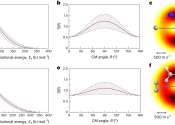First cells reprogrammed to make synthetic polymers—and virus-resistant drug manufacturers
Scientists have developed the first cells that can construct artificial polymers from building blocks that are not found in nature, by following instructions the researchers encoded in their genes.









